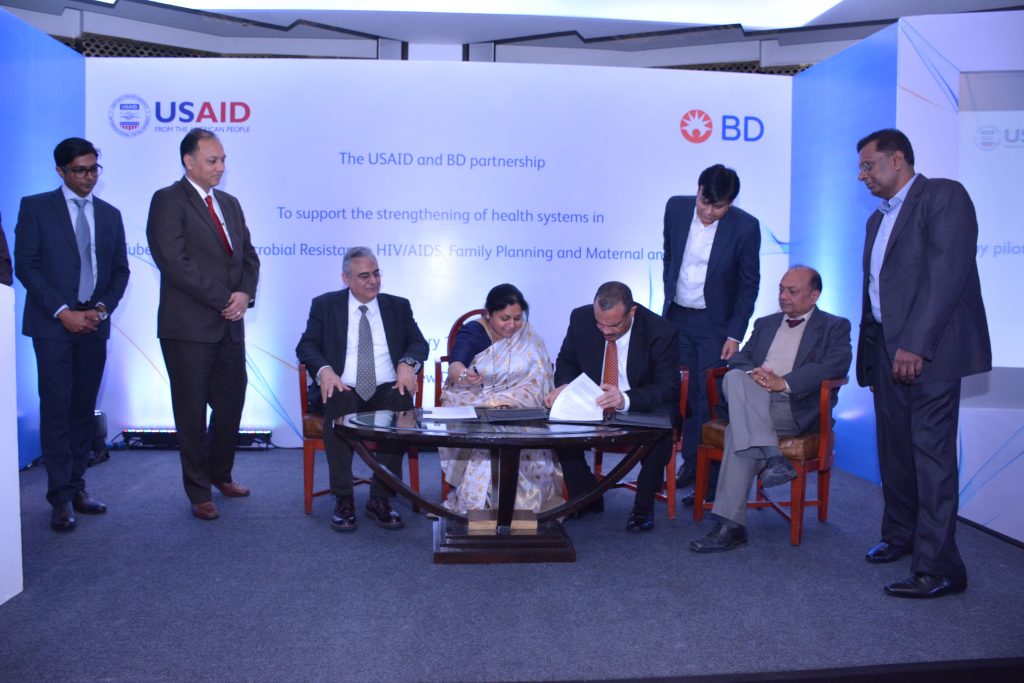
Tuberculosis (TB) continues to be the largest infectious disease killer in India causing an estimated 4,50,000 deaths every year. The country is home to over a quarter of the global TB burden, with an estimated 27 lakh new TB cases emerging each year. Recognizing that tuberculosis affects populations inequitably, contributes to the cycle of ill-health, malnutrition and poverty, and that the spread of TB has an impact upon the community and its development, the government has waged a war against the disease. The Hon’ble Prime Minister, Shri Narendra Modi, has set an ambitious target of eliminating the disease from the country by 2025, that is 5 years ahead of the global target of SDGs by 2030 and has adopted many novel strategies since 2017.
TB is a disease where people along with ill-health, face profound socioeconomic challenges and financial hardships. TB is expected to cost the world economy USD $1 trillion by 2030. At workplaces, TB causes workflow disruption, reduction in productivity, loss of employment, increases in direct costs related to care and treatment of employees. There are indirect costs, too, such as the replacement and retraining of workers.

One of the corner-stones to achieve this mission is concrete multi-stakeholder partnerships – the Corporate TB Pledge (CTP) Program is an initiative of the Ministry of Health & Family Welfare, supported by USAID, to galvanize the corporate sector to join the fight against TB. Corporates on becoming Corporate TB Pledge (CTP) members are provided technical support for TB related interventions (within workplaces and for community outreach) and are promoted across membership tiers based on their commitment.
Currently, the PAHAL project under IPE Global, is implementing this project with technical assistance from the International Union for Tuberculosis and Lung Diseases. More than 95 Corporates, both Indian and American have signed the Corporate TB Pledge (CTP) at various levels and more than 30 Corporates are actively engaged with TB Free Workplace policy programs, Community Outreach initiatives, TB screening and detection facilities, leveraging CSR funds and engaging multiple stakeholders in achieving the goal of eliminating TB by 2025.
Tuberculosis can only be eliminated through prevention efforts and access to quality diagnosis, treatment and care. This also includes enhancing access to affordable diagnostic tools and drug treatment, effective people-centered and community-based models of care supported by integrated care services, as well as financing innovations and additional investments in research and development. The private-corporate sector is very well organized and equipped to provide these.
It is therefore, time that we all commit ourselves to protecting our employees and families and cement our commitment by signing the Corporate TB Pledge. It is time that we reaffirm our obligation to end the tuberculosis epidemic and pledge to provide leadership, work in partnerships, accelerate regional and national collective actions, and encourage investments and innovations to fight this preventable and treatable disease.
Seema Gupta is Advisor – CSR and Partnerships at IPE Global Ltd.
Source: https://www.ipeglobal.com/blogs/world-tb-day-2020-corporates-join-the-fight-to-end-tb-by-2025-65.php
Contact Us
Invest to Eliminate TB
The most widely used method to diagnose TB in India is sputum smear microscopy, which has low-sensitivity. A more accurate molecular test is GeneXpert or CBNAAT. Whilst the government has scaled up the number of CBNAAT machines
Delay in accurate diagnosis of tuberculosis in India is also due to untrained first line of contact, be it allopaths or alternative medicine.

